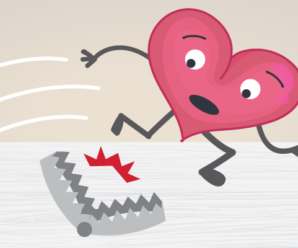
An enlarged heart isn’t a disease in itself. Rather, it usually signals a different, underlying problem with the heart.
Coronary artery disease, chemotherapy, high blood pressure, viral infections, alcohol and drug abuse and heart valve problems are also possible causes of an enlarged heart. People who have preexisting heart conditions are more likely to develop an enlarged heart.
“In the case of coronary artery disease, blockages develop in the arteries, which restricts blood flow to the heart. As a result, the heart muscle weakens or is damaged by a heart attack,” said Dr. Nicholas Wyskoarko, a Marshfield Clinic Health System cardiologist.
Wyskoarko notes that heart valve problems increase the workload on the heart muscle, which weakens it over time.
“Alcohol, drugs and viruses directly damage the heart muscle, weaken it and, again, leads to an enlarged heart,” he said.
Ultrasounds are typically used to detect the presence of an enlarged heart.
Enlarged hearts and lack of care
Overall having an enlarged heart is not very common, Wyskoarko said.
“We have the technology to identify these issues quickly and treat them effectively,” he said. “Often the people we see with enlarged hearts are those who have not had medical care for an extended period of time. This is why awareness is so important. We can help keep people healthy before these issues become more serious if they are aware and seek care when symptoms arise.”
Know the signs
Symptoms of an enlarged heart include:
- Shortness of breath
- Extreme fatigue
- Lightheadedness
- Swollen legs
“In addition, patients can go into congestive heart failure with an enlarged heart,” Wyskoarko said. “If the heart is enlarged, the pumping chamber of the heart is already compromised.”
Treatment depends on cause
“It’s critical to determine the underlying cause of the enlarged heart so we can treat it appropriately,” Wyskoarko said. “If it’s coronary artery disease, then we can treat those patients very successfully through open-heart bypass surgery or coronary-artery stenting.”
If a patient has an enlarged heart due to elevated blood pressure, the patient can be successfully treated with medications and lifestyle modifications.
Wyskoarko adds that if the cause is drugs, alcohol or chemotherapy, elimination of the offending agent can lead to recovery of the strength of the heart muscle.
Rarely, women will suffer from an enlarged heart shortly after delivering a child. This can lead to the woman experiencing congestive heart failure, which can be identified early and treated.
Prevention first
The best way to protect your heart is proactively. A healthy diet, regular exercise and not smoking or quitting smoking, are all things that help protect your heart health.
“If you already have diabetes, work really hard to keep it under control. The same goes for high blood pressure or high cholesterol. These are elements we have some control over, so it’s very important to make sure they are in a healthy range. Certain factors we can’t control like age or family history,” Wyskoarko said.
Wyskoarko suggests the DASH, Mediterranean or Vegan diet as a good way to stay heart healthy. He also said that even patients with heart conditions can and should exercise.
If you have questions about your heart health, talk with your care team.






Leave a Reply